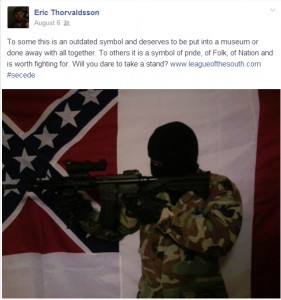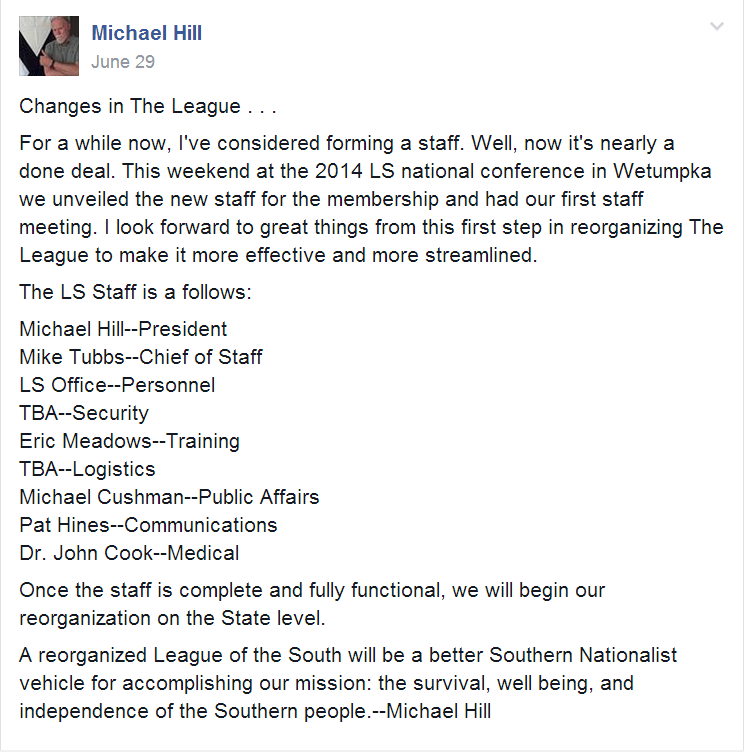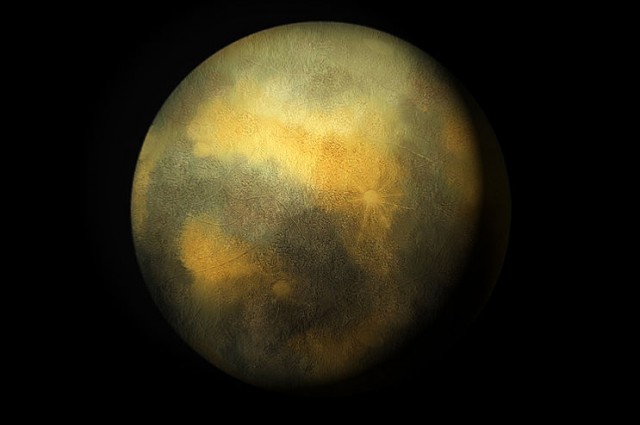A previously vocal but nonviolent neo-Confederate group–the League of the South (LOS), the most prominent Southern separatist group in the US–has begun training a uniformed paramilitary unit for any-means-necessary style action, according to civil rights watch group Hatewatch,  which based its revelations on leaked internal documents and sources within the LOS.
which based its revelations on leaked internal documents and sources within the LOS.
“We are for the survival, well-being, and independence of the Southern people,” said LOS president Michael Hill of the movement. “And when we say ‘the Southern people,’ we mean white Southerners. We are an ethno-nationalist movement and we want a free and independent South for our people, as our homeland. That’s pretty much what we are fighting for.”
The move to train a paramilitary unit comes after years of rhetoric threatening violence, Hatewatch reported. The unit has been named “The Indomitables” and is comprised of former Ku Klux Klan members and neo-Nazis, Hatewatch reported.
The unit was conceptualized at a LOS meeting earlier this year, according to Hatewatch. The lead trainer for the unit is US Army and Navy veteran Floyd Eric Meadows, 43, of Rome, Ga., whose online name is Eric Thorvaldsson.
Hill responded to the SPLC revelations on his blog, “Even if we are–and you really have no idea on earth if we are or not–setting up a Southern militia or some other form of paramilitary organization, we are doing nothing that free men have not done for centuries. Deal with it and stop your whining.
“The primary targets will not be enemy soldiers; instead, they will be political leaders, members of the hostile media, cultural icons, bureaucrats, and other of the managerial elite without whom the engines of tyranny don’t run.”
Of LOS’s motives, Hill has stated, “We desire that our women and children be warm and snug while the world outside rages. And as our due for that we must face the world.”
The current roster of the group is as follows:



